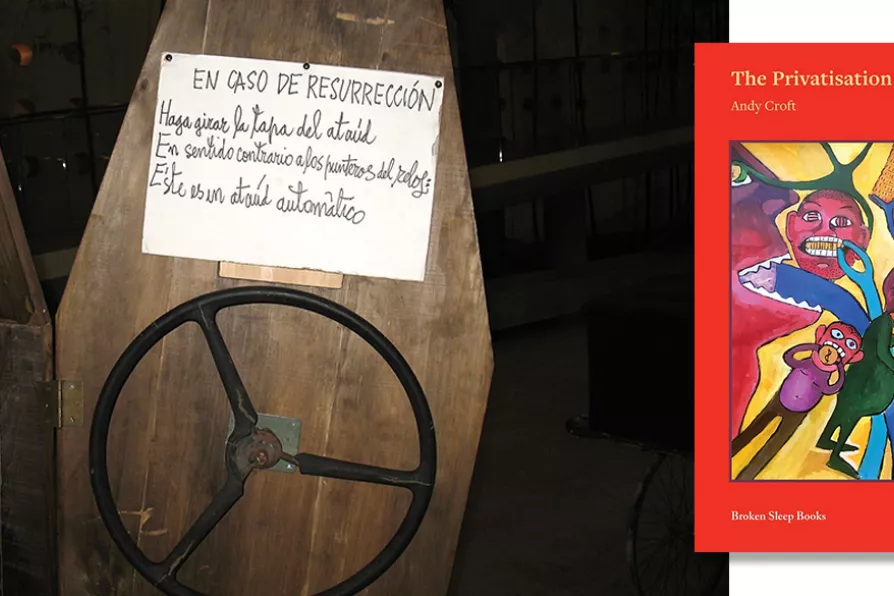GORDON PARSONS applauds a marvellous story of human ingenuity and youthful determination, well served by a large and talented company

 IMPROVE THE BLANK PAGE: Installation by Nicanor Parra at the Centro Cultural Palacio La Moneda, Santiago, in 2007: "In case of resurrection do turn anticlockwise, this coffin is automatic."
[Carlos Varela/flickr/CC]
IMPROVE THE BLANK PAGE: Installation by Nicanor Parra at the Centro Cultural Palacio La Moneda, Santiago, in 2007: "In case of resurrection do turn anticlockwise, this coffin is automatic."
[Carlos Varela/flickr/CC]
The Privatisation of Poetry,
Andy Croft, Broken Sleep Books, £13.99
IN this book Andy Croft brings together 21 essays and reviews first published in the Morning Star and a wide range of literary and online magazines between 1994-2024, including the New Statesman, London Magazine, PN Review, Scratch and Thumbscrew — several at the heart of the “art” poetry establishment he criticises.
Collectively these pieces underscore the theme articulated by his friend and collaborator, the legendary popular performance poet Adrian Mitchell: “Most people ignore poetry because most poetry ignores most people.”
With Croft, Mitchell co-edited the ground-breaking left movement anthology Red Sky At Night, 2003, which reached back to Blake and the Chartists and forward to the contemporary, and which included Poet Laureates and Scottish Makars writing art poetry, certainly, but from the left.

Peter Mitchell's photography reveals a poetic relationship with Leeds












